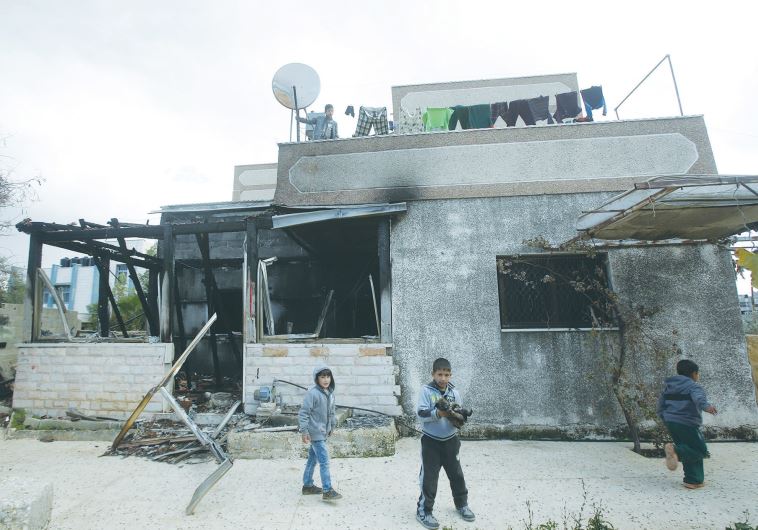Court: Key confessions of Jewish terror defendant valid, minor's rejected
No decision was made on whether or not the Shin Bet tortured the defendant, and threw out the minor-defendant confessions for torture.
 Palestinian children play in the yard of the Dawabsha family home in Duma in December, 2015Updated:
Palestinian children play in the yard of the Dawabsha family home in Duma in December, 2015Updated: